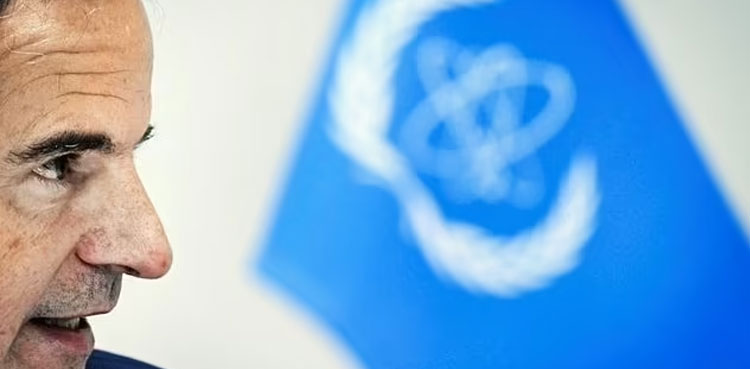
[ad_1]
The head of the United Nations nuclear watchdog warned Tuesday that “the margins for manoeuvre are beginning to shrink” on Iran’s nuclear programme ahead of an important trip to Tehran.
“The Iranian administration must understand that the international situation is becoming increasingly tense and that the margins to manoeuvre are beginning to shrink, and that it is imperative to find ways to reach diplomatic solutions,” Rafael Grossi, told AFP in an interview at the COP29 climate summit in Baku.
The International Atomic Energy Agency (IAEA) is allowed to carry out inspections in Iran, he said, but “we need to see more. Given the size, depth and ambition of Iran’s programme, we need to find ways of giving the agency more visibility.”
His visit comes after Donald Trump — who pulled out of a hard-won nuclear deal with Iran negotiated under Barack Obama — has been voted back into the White House.
“I already worked with the first Trump administration and we worked well together,” the IAEA chief insisted.
To the dismay of many of its allies, Washington pulled out of the agreement in 2018. The deal was supposed to dismantle much of Iran’s nuclear programme and open it up to greater inspection in exchange for the lifting of sanctions.
– Tehran ‘open’ to talks –
All attempts to revive the 2015 accord — signed with the US, Russia, China, Britain, France and Germany — have since failed.
“It’s an empty shell,” Grossi admitted.
Since then the Iranian nuclear programme has continued to expand, even if Tehran denies it has a nuclear bomb.
The Islamic Republic has greatly increased its stockpile of uranium enriched to 60 per cent, according to the IAEA, close to the 90 percent needed to make an atomic weapon.
But since the new reformist President Masoud Pezeshkian took office in August, Tehran has indicated that it would be open to talks to resurrect the agreement.
Grossi’s last visit to Iran was in May when he went to Isfahan province, home to the Natanz uranium enrichment plant.
He then urged Iran’s leaders to adopt “concrete” measures to address concerns over its nuclear programme and to increase cooperation with inspectors.
[ad_2]
Source link





